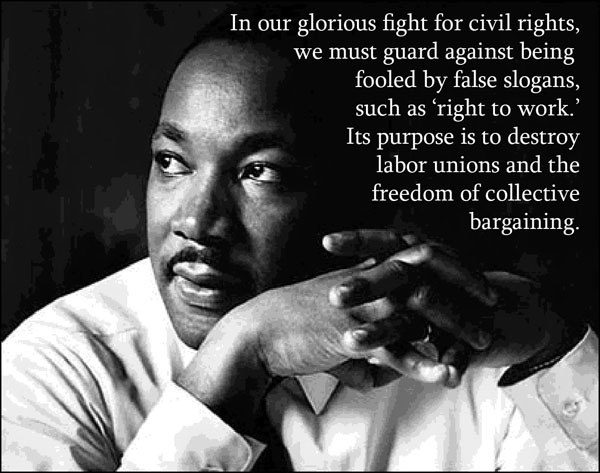 Netroots Nation comes to Providence this week … you can expect a ton of coverage from us, both previewing the big progressive networking event and covering all the action on the panels, the keynote speakers, the parties and the protests. The Phoenix put together a great Netroots preview story last week (still on news stands now) and the Projo has a nice piece this morning … this time, though, the august daily does not put scare quotes around the word progressive.
Netroots Nation comes to Providence this week … you can expect a ton of coverage from us, both previewing the big progressive networking event and covering all the action on the panels, the keynote speakers, the parties and the protests. The Phoenix put together a great Netroots preview story last week (still on news stands now) and the Projo has a nice piece this morning … this time, though, the august daily does not put scare quotes around the word progressive.
Scott MacKay dispels the myth that organized labor holds outsized sway at the State House writing, “There was a time when labor had outsize clout at the State House. That would have been 1972, not 2012.” MacKay, who knows the State House as well as anyone, rattles off the litany of losses labor has sustained over the past 30 plus years … It’s sad but true: one can literally chart Rhode Island falling further into economic decline as unions grew less influential during that period. As we’ve written before, anyone telling you organized labor runs Rhode Island is either trying to sell you a right-wing point of view, or has already been sold one.
It’s not just labor that doesn’t have juice at the State House … neither does the women’s rights movement. The Projo has a telling tale in Political Scene that suggests Senate President Teresa Paiva Weed may have sent Gov. Chafee’s EDC nominees, which include Pablo Rodriguez, a pro-choice doctor, to a committee controlled by conservative Senator Michael McCaffrey rather than the Corporations Committee, chaired by progressive Senator Josh Miller.
Seems the new Miss USA, Olivia Culpo of Cranston, has a bit of a progressive (or libertarian_ streak in her … when asked if she thought a transgender woman could be Miss USA, she said, “This is a free country and to each their own.”
Not only is it Netroots week, it’s also Scott Walker recall week … and it’s looking like he might survive. Either way, Netroots will have a post-mortem on it in Providence on Friday.
Ted Nesi links to a piece by The Hill suggesting that progressive Democrat Sheldon Whitehouse might be a contender to run the Democratic Senatorial Campaign Committee.
A primer on Florida’s Stand Your Ground Law.
Jared Paul and Randall Rose, of Occupy Providence, weigh in on the 38 Studios debacle.
Here’s a lot ripe for redevelopment between the State House and North Main Street:




